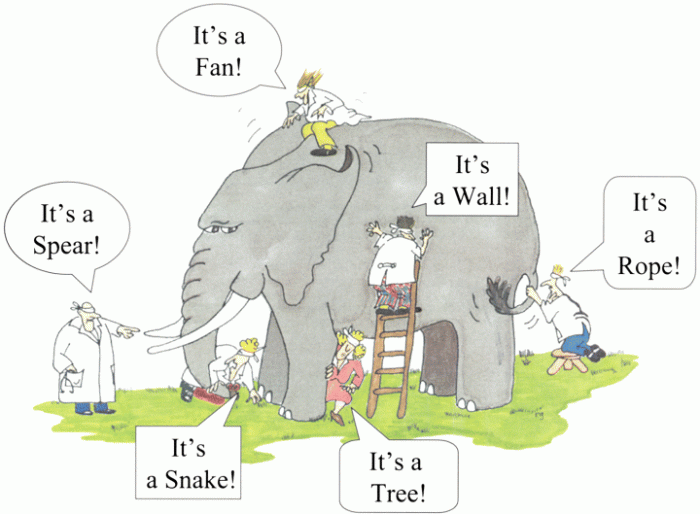The stillborn adjustment?



That’s us.
One of my girls’ favorite bedtime stories is “Seven Blind Mice,” by Ed Young. The book tells the story of seven blind mice who meet with an elephant, only they don’t know what it is. Each one of them inspects a different part of the elephant, and they always make a mistake when saying what the things is. It is only when all of their perceptions are put together when they realize they are in front of an elephant.
The book is a perfect analogy for the current state of the analysis of the Venezuelan economy. None of us really know what’s going on, but if you start putting bits and pieces of information together, the picture might appear to be clearer.
With that in mind, what do we know about the Venezuelan economy as of late?
- The government has stopped publishing inflation figures. Inflation for June is more than a month overdue. Inflation for July is more than a week late. It doesn’t take a genius to imagine why they’re hiding the figures. Some guess-timates I’ve seen say that June’s inflation was 5.5% – I haven’t seen any for July.
- Venezuelan GDP supposedly dropped by 4% in the second quarter – supposedly because that number, too, is super secret.
- Liquid foreign exchange reserves have dropped by almost $1 billion in the last few days.
- According to Barclay’s, the government is increasing its outlays of foreign exchange to importers. The government has handed out $9.6 billion through Cencoex in the first half of the year – keep in mind that Cencoex sells dollars at the BsF 6.3 rate, which is more than ten times less than the black market rate.
- According to various informal reports I have gotten, scarcity of some basic staples has gone down relative to how things were a few months ago. This does not appear to include medicines or beauty products, apparently, but more like food stuffs. It’s too soon to tell for sure … again, little info.
- The government continues to talk about the rise in the price of gas, but no decisions appear to have been made yet.
- China gave the government a big wad of cash in the last few months.
- Bank of America, in a research note put out yesterday by our friend FRod, was increasingly pessimistic. It referred to an interview Rafael Ramírez gave, in which he said that Venezuela was, perhaps, going to a “dual exchange rate system” FRod thinks that momentum for “unification,” something Ramírez had strongly hinted at a few months ago, has diminished. It would appear as though internal government politics are watering down any attempt for adjustment, and this will make the government’s fiscal situation more tenuous.
- Venezuela has to pay more than $6 billion to service its foreign debt in October.
- Opinion polls are putting most of the blame on the economic situation on the government.
- Price of oil is holding somewhat steady, although the trend seems to be that it is going down.
- Oh, and the sale of Citgo continues to move along.
What can we make of all this? Here is my incredibly simple story: the government needs to win elections next year. It is broke. It doesn’t have the cash to hand out goodies. Scarcity is hurting the government. Inflation does not seem to be hurting the government as much as scarcity. It is unpopular. They are burning the midnight oil, using all the reserves they can to patch up the economy in the next few months. The sale of Citgo sounds like a way of shoring up foreign reserves ahead of the elections, although they continue to talk it down. There is no political capital for implementing a broad adjustment package, so they will continue to muddle through. The exchange rate manguangua will remain. Gas prices will probably not adjust in the near future.
Am I wrong? We’re all blind mice in this, so your guess is as good as mine. Will the government’spostponement of tough decisions work? I don’t see how. Will we avoid default on our foreign debt or hyperinflation? These signals are suggesting it’s less likely than a few months ago.
We had an intense discussion on the blog about whether the government was going to adjust its economic policies. It seems as though a sensible “cleaning up” of the country’s distortions is increasingly unlikely.
Caracas Chronicles is 100% reader-supported.
We’ve been able to hang on for 22 years in one of the craziest media landscapes in the world. We’ve seen different media outlets in Venezuela (and abroad) closing shop, something we’re looking to avoid at all costs. Your collaboration goes a long way in helping us weather the storm.
Donate




